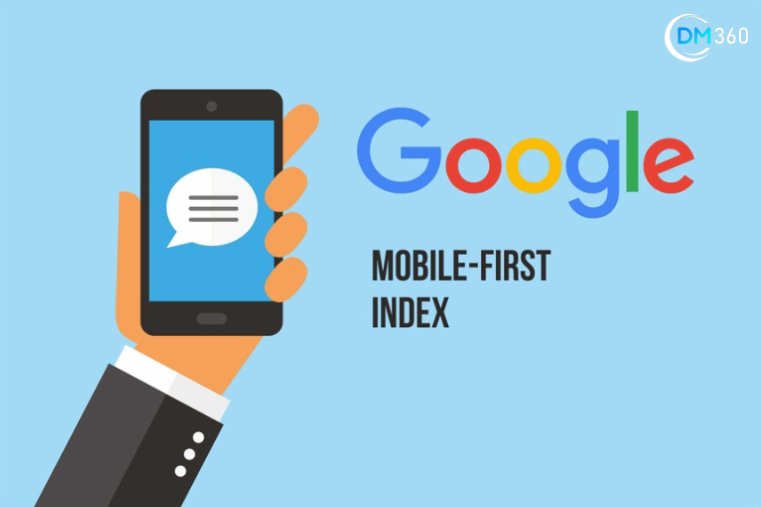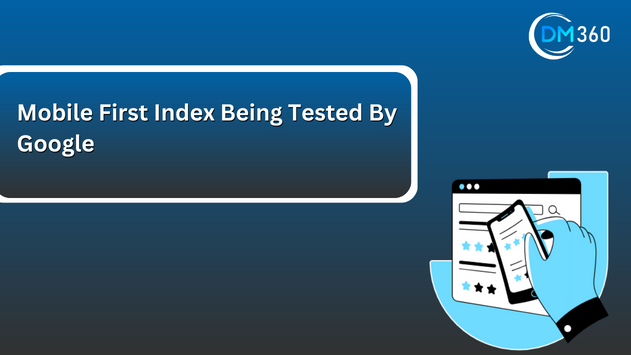Table of Contents
ToggleMobile First Index Being Tested By Google – As you may know, Google is rolling out mobile-first indexing. The mobile-first index will be rolled out in September 2020. But what does that imply for your ranking? Should you be worried? Should you do anything? Google has been highly vocal on Mobile-first indexing. This put-up serves as a reminder, so I’ll speak to you through 5 matters you want to comprehend about mobile-first indexing.
Mobile-First Indexing

In March 2018, Google announced that it would begin with mobile-first indexing. In March 2020, Google announced that it would roll out mobile-first indexing for the complete web. This will appear in September 2020. But what does that entail? It is possible that from now on, Google will base its locations in the index on the mobile model of your site, whereas they used to index the laptop version of your website first.
This change is made because extra and greater searches come from a mobile device, and to supply these customers with a better experience, Google determined that it was time to prioritize mobile results. The mobile-first index is now not separate; Google has solely one index from which it serves the results.
Do No Longer Panic!
From September, the mobile model of each web page will be indexed. But that no longer implies that whatever is happening. It likely doesn’t do anything to your rankings. If Google indexes your site’s mobile model, you’ll be aware in your Google Search Console. In this capacity, Google will decide with the content material available on your mobile website how you will rank, both on the desktop as well as on mobile. This sounds especially big; however, it’ll have minimal consequences for most WordPress websites. If you assume it, most WordPress websites have a responsive design. This skill shows that each mobile and computer display shows identical content. You’ll have nothing to fear in this case.
If you have exceptional websites for mobile and computers, and your mobile website has a long way, much less content, you have something to fear. Everything you impart on your computing device web page ought to be accessible on your mobile website — this is known as mobile parity. This includes your structured records and meta facts like titles, descriptions, and the robot’s meta tags.
If you’re searching to enhance your website’s pace online and the consumer experience, in that case, it may be suitable to appear in the upcoming web page experience replaced using Google. Mobile-friendliness is one of the indicators that informs the web page ride algorithm.
Do A Mobile-Friendliness Test
You do not have to have a mobile website to be in the mobile-first index, as Google will also index desktop websites. But it will be more difficult to rank if your web page is no longer mobile-friendly. So there’s work for you without a mobile-friendly web page yet.
So what do you want to do? Check out Google’s mobile-friendliness take a look at and take a look at whether or not or no longer your website is mobile-friendly. In our experience, this is a minimal requirement. If your website no longer passes this test, your mobile model is no longer up to scratch. Read our Mobile web optimization closing information to analyze how to enhance your mobile site. Also, be certain to study Google’s documentation on how to prepare your website online for mobile-first indexing.
Think About UX On Mobile
A mobile website has a distinct design from a computer model to attract your audience. Your display screen is tiny. While it would possibly make sense to discard a lot of content on mobile due to area limitations, that wouldn’t be a top practice.

Of course, you can enhance the mobile person’s journey by using the following fine practices. For instance, Google defined that hamburger or accordion menus are flawlessly fantastic to use. These types of menus make sense; they assist a mobile consumer to browse through your website. Putting content in the back of a tab to increase the mobile experience is fine.
Write Mobile-Friendly

Reading from a display screen takes a lot of work. And analyzing from a mobile display screen is even tougher than studying from a huge screen. You’ll want to have a mobile-friendly copy to appeal to a mobile audience. This capacity produces quick sentences and compact paragraphs. You want to make certain the font on your mobile website is giant and clear enough, and you want to make sure to use adequate whitespaces.
Check Out Those Mobile Snippets
Is your target audience on the whole mobile? Do they come from the mobile search effects on your page? Or do most of your natural visitors come from the computing device SERPs? Make certain to test this in your Google Analytics.
Optimize your mobile snippet in our Google preview if you get a lot of traffic from mobile search results.
Conclusion On Mobile-First Indexing
Don’t panic about the mobile-first index Google was rolling out in September 2020. You can see your content on any computing device or mobile device if your website has a responsive design. Please take a look at that’s the case. If so, the mobile-first indexing will have little penalty for your ranking. Do take some time to consider the mobile model of your website. Is your graph suitable enough? Or ought you to improve? Are the buttons giant and ample to tap? What about your content? Could you make your textual content more readable for a mobile audience? Making certain your website has a kick-ass mobile journey is something you want to get started on. This will make a distinction in your rankings shortly. Contact us now for mobile-first indexing & SEO services in Chicago.
FAQs
Mobile First Index Being Tested By Google
Google’s Mobile-First Index means Google predominantly uses the mobile version of a website’s content for indexing and ranking, rather than the desktop version.
Why is Google testing the Mobile-First Index?
Google is testing the Mobile-First Index to align with the shift in user behavior, as most searches now happen on mobile devices, making mobile-friendly websites more crucial for rankings.
How does the Mobile-First Index impact SEO?
Websites that are not mobile-friendly may experience ranking drops, as Google prioritizes responsive, fast-loading, and mobile-optimized content in its index.
How can I prepare my website for the Mobile-First Index?
Ensure your site is mobile-responsive, loads quickly, uses identical content across desktop and mobile, and provides a smooth user experience on smaller screens.
Does the Mobile-First Index mean desktop sites are ignored?
No, desktop sites aren’t ignored, but if your mobile site has less content or poor performance, it may negatively affect your search visibility in Google’s index.






